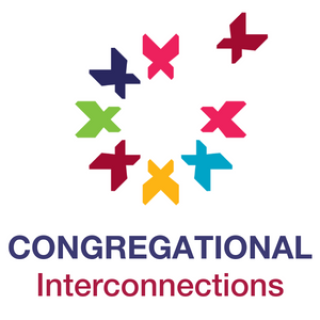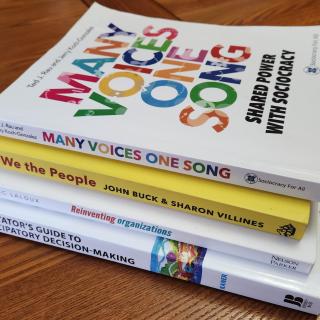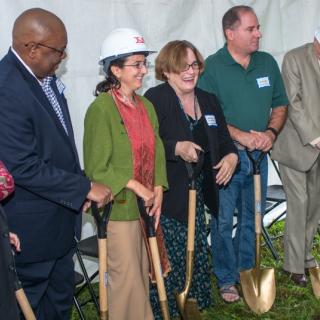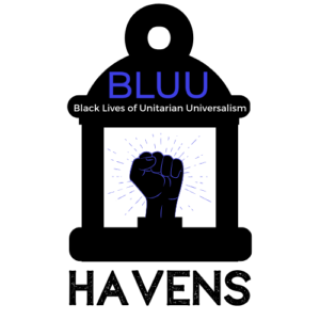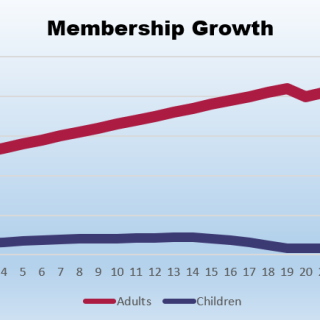
LeaderLab
Refine your search by selecting topic (e.g. growth, governance), format (webinar, training), or author.
Toggle to filter resultsAvailable filters:
Changing a filter will refresh results (and remaining options) immediately. Searching by keyword or changing the number of items per page requires use of the "Search" button.
- Aisha Ansano (1)
- Aisha Hauser (1)
- AJ van Tine (1)
- Alice Mann (1)
- All Souls Church Unitarian, Washington, DC (1)
- All Souls UU Church, Kansas City, MO (1)
- Amy Shaw (1)
- Andrea Perry Lerner (3)
- Andrew Pakula (1)
- Anne Odin Heller (1)
- Annie Gonzalez Milliken (1)
- Annie Scott (2)
- Ashley Horan (3)
- Association for Unitarian Universalist Music Ministries (AUUMM) (2)
- Barbara Child (3)
- Barbara Gadon (1)
- Barry Finklestein (8)
- Bart Frost (1)
- Beacon UU Congregation in Summit, Summit, NJ (1)
- Beth Casebolt (7)
- Beth Dana (2)
- Bob Renjilian (1)
- Brent A Smith (1)
- Bull Run UUs, Manassas, VA (1)
- Byron "Tyler" Coles (1)
- Caitlin Breedlove (1)
- Cameron Young (3)
- Carbondale Unitarian Fellowship, Carbondale, IL (1)
- Carey McDonald (4)
- Carlton Elliott Smith (1)
- CB Beal (4)
- Cecilia Kingman (2)
- Cedar Valley Unitarian Universalists, Cedar Falls, IA (1)
- Central East Region of the UUA (33)
- Chip Roush (2)
- Chris Crass (1)
- Christina Leone Tracy (1)
- Christine Robinson (2)
- Christopher L. Walton (1)
- Christopher Wulff (1)
- Church of the Larger Fellowship, Boston, MA (2)
- Cir L’Bert Jr. (1)
- Congregational Life (7)
- Connie Goodbread (7)
- Cora McCold (1)
- Cynthia Kane (1)
- Dan Hotchkiss (4)
- Darcey Elizabeth Hegvik Laine (4)
- Darcy Roake (2)
- Darrick Jackson (1)
- David A Miller (3)
- David H. Messner (1)
- David Pyle (17)
- Davies UU Congregation, Camp Springs, MD (1)
- Deborah Weiner (1)
- Denise T. Davidoff (1)
- Donald E. Skinner (7)
- Dori Davenport Thexton (3)
- Douglas Taylor (1)
- Douglas Zelinski (5)
- DRUUMM (Diverse & Revolutionary UU Multicultural Ministries) (1)
- East Shore Unitarian Church, Bellevue, WA (1)
- Elías Ortega (1)
- Elizabeth Ann Terry (2)
- Ellen Spero (1)
- EqUUal Access (1)
- Erica Baron (10)
- Eric Bliss (2)
- Eric Kaminetzky (1)
- Erika Hewitt (5)
- Erik Walker Wikstrom (1)
- Evin Carvill Ziemer (12)
- First Parish in Lexington, Lexington, MA (1)
- First Unitarian Church, Portland, OR (1)
- First Unitarian Church of Albuquerque, Albuquerque, NM (1)
- First Unitarian Church of Des Moines, Des Moines, IA (1)
- Fredric Muir (1)
- Gail R. Geisenhainer (1)
- George Carvill (1)
- Gilbert Rendle (1)
- Gordon B McKeeman (1)
- Gretchen Maune (1)
- Halcyon Westall (1)
- Heather Bond (1)
- Heather Petit (1)
- Helio Fred Garcia (1)
- Henning Hraban Ramm (1)
- Hilary Allen (2)
- HP Rivers (1)
- Ian Evison (7)
- James Kubal-Komoto (2)
- Jan Christian (5)
- Jan Gartner (45)
- Janice Marie Johnson (1)
- Jason Seymour (1)
- Jay Pacitti (1)
- Jeanelyse Doran Adams (2)
- Jefferson Unitarian Church, Golden, CO (1)
- Jennica Davis-Hockett (3)
- Jennifer Toth Clary (1)
- Jenni Papp (1)
- Jesse Jaeger (1)
- Jill Goddard (1)
- Joanna Fontaine Crawford (1)
- Joe Sullivan (3)
- John A. Buehrens (1)
- Jonipher Kūpono Kwong (8)
- Jordinn Nelson Long (1)
- Joy Berry (1)
- Jules Jaramillo (1)
- Julie Taylor (2)
- Karen Brammer (2)
- Karen G. Johnston (2)
- Karen Lewis Foley (1)
- Karin Lin (1)
- Kasey Kruser (3)
- Kathleen Parker (1)
- Kathleen Rolenz (1)
- Kathy McGowan (9)
- Kay Crider (2)
- Keith Kron (2)
- Kenneth Brown (1)
- Kenneth Hurto (2)
- Kenny Wiley (1)
- Kimberley Debus (1)
- Kimberly Quinn Johnson (1)
- Kim Hampton (1)
- Kim Sweeney (3)
- Larry Ladd (2)
- Larry Stritof (1)
- Laura Beth Brown (1)
- Laura Park (4)
- Laura Randall (1)
- Lauren Smith (1)
- Leah Ongiri (1)
- Leon Spencer (1)
- Leslie Takahashi (1)
- Liberal Religious Educators Association (1)
- Lifespan Faith Engagement (1)
- Lisa Bovee-Kemper (2)
- Lisa Presley (12)
- Liz Coit (2)
- Liz James (1)
- LoraKim Joyner (2)
- Lori Emison Clair (2)
- Lori Stone (2)
- Louise Green (1)
- Lucia Santini Field (1)
- Margaret A Keip (1)
- Margaret L. Beard (1)
- Margy Levine Young (1)
- Marie Luna (3)
- Mark Bernstein (18)
- Mark Hicks (2)
- Mark V. Ewert (2)
- Mary Byron (1)
- Mary Katherine Morn (1)
- Matthew Johnson (1)
- Meck Groot (4)
- Megan Foley (8)
- Meg Riley (1)
- Melanie Davis (2)
- Melissa James (1)
- Michael J. Crumpler (1)
- Michael J. Tino (1)
- Michelle Richards (2)
- MidAmerica Region of the UUA (58)
- Mykal Slack (1)
- Nancy Bowen (1)
- Nancy Combs-Morgan (7)
- Nancy Heege (2)
- Natalie Briscoe (1)
- Natalie Maxwell Fenimore (1)
- Neighborhood UU Church of Pasadena, Pasadena, CA (1)
- New England Region of the UUA (8)
- Nicole Duff (1)
- Northlake UU Church, Kirkland, WA (1)
- Pacific Unitarian Church, Rancho Palos Verdes, CA (1)
- Pacific Western Region of the UUA (10)
- Pastor Danny Givens (2)
- Patrice K. Curtis (2)
- Patricia Infante (28)
- Paula Cole Jones (9)
- Peter Bowden (3)
- Peter Morales (2)
- Phillip Lund (9)
- Qiyamah Rahman (1)
- Quimper UU Fellowship, Port Townsend, WA (1)
- Rachel Maxwell (2)
- Ranwa Hammamy (1)
- Rayla D. Mattson (1)
- Renee Ruchotzke (167)
- Rev. Molly Brewer (1)
- Richard Nugent (9)
- Richard S. Gilbert (1)
- Richard Speck (1)
- River Road UU Congregation, Bethesda, MD (1)
- Robert L. Eller-Isaacs (3)
- Robin Bartlett (1)
- Rob Molla (2)
- Rosemary Bray McNatt (1)
- Safe Congregations Team (2)
- Sana Saeed (5)
- Sarah Gibb Millspaugh (19)
- Sarah Lammert (2)
- Sarah Movius Schurr (13)
- Scott Tayler (4)
- Seanan R. Holland (1)
- Sean Griffin (5)
- Shannon Harper (2)
- Sharon Dittmar (10)
- Sheila Schuh (1)
- Shelby Meyerhoff (1)
- Skinner House Books (1)
- Sofía Betancourt (1)
- Southern Region of the UUA (6)
- Stefan Jonasson (7)
- Steve Bridenbaugh (1)
- Steven Leigh Williams (1)
- Stewardship for Us (11)
- Sue Phillips (3)
- Summer Albayati (1)
- Sunshine Jeremiah Wolfe (5)
- Susan Frederick-Gray (2)
- Susanne Intriligator (1)
- Suzanne Meyer (1)
- Tandi Rogers (19)
- Tera Little (2)
- Terasa Cooley (1)
- The First Unitarian Church of Dallas, Dallas, TX (2)
- Thom Belote (1)
- Tim Byrne (1)
- Tom Schade (1)
- Unitarian Church of Harrisburg, Harrisburg, PA (1)
- Unitarian Universalist Association of Membership Professionals (6)
- Unitarian Universalist Ministers Association (UUMA) (1)
- Unitarian Universalists San Luis Obispo, San Luis Obispo, CA (1)
- Unity Temple UU Congregation, Oak Park, IL (1)
- Universalist Unitarian Church of Peoria, Peoria, IL (1)
- UUA Commission on Appraisal (COA) (1)
- UUA Congregational Life: Growth Strategies For Congregations Office (1)
- UUA Credentialing and Professional Development, Ministries and Faith Development (1)
- UUA Human Resources (1)
- UUA Information Technology Service Staff Group (2)
- UUA Office of Church Staff Finances, Ministries and Faith Development (21)
- UUA Outreach and Public Witness, Communications (6)
- UU Area Church at First Parish Sherborn, Sherborn, MA (1)
- UUA Stewardship and Development (2)
- UUA Web Team, Information Technology Services (7)
- UU Church of Akron, Fairlawn, OH (2)
- UU Church of Annapolis, Annapolis, MD (1)
- UU Church of Berkeley, Kensington, CA (1)
- UU Church of Bloomington, Indiana, Bloomington, IN (1)
- UU Church of Delaware County, Media, PA (1)
- UU Church of Tallahassee, Tallahassee, FL (1)
- UU Congregation of Binghamton, Binghamton, NY (3)
- UU Congregation of Fairfax, Oakton, VA (1)
- UU Congregation of South County, Peace Dale, RI (1)
- UU Fellowship of Beaufort, Beaufort, SC (1)
- UU Fellowship of Wayne County Ohio, Wooster, OH (1)
- UU Leadership Institute (5)
- UU Society for Community Ministries (1)
- UU Trauma Response Ministry (1)
- UU University (1)
- Vail Weller (2)
- Warren Brown (1)
- Washington Ethical Society, Washington, DC (2)
- Wayne B. Arnason (1)
- Wayne B. Clark (1)
- West Shore UU Church, Rocky River, OH (1)
- Westside UU Congregation, Seattle, WA (1)
- White Bear UU Church, Mahtomedi, MN (1)
- William Clontz (3)
- William E Gardner (2)
- Woullard Lett (1)
- Wren Bellavance-Grace (7)
- #8thPrinciple (3)
- #BlackLivesMatter (1)
- #COVID19 (116)
- #WidenTheCircle (9)
- 3rd Principle (Acceptance & Spiritual Growth) (1)
- 5th Principle (Conscience & Democracy) (1)
- Brokenness (1)
- Career Development for Ministers (2)
- Children (2)
- Christianity (1)
- Coming-of-Age (1)
- Coming of Age (1)
- Communication (72)
- Congregational Administration (16)
- Copyright Permissions (3)
- Covenant (1)
- Death (3)
- Disability & Accessibility (28)
- Disaster or Crisis (1)
- Emerging Ministries (3)
- Faith Development
(31)
- Adult Faith Development (26)
- Children's Faith Development (11)
- Covenant Groups & Small Group Ministry (21)
- Families & Faith Development (18)
- High School-Aged Youth Faith Development (13)
- Middle School-Aged Youth Faith Development (3)
- Multigenerational Faith Development (10)
- Spiritual Practice (1)
- Young Adult Faith Development (ages 18-35) (4)
- Youth Ministry (13)
- Family (1)
- Family Programs (1)
- Finance for Congregations (43)
- General Assembly (5)
- Giving & Generosity (6)
- Governance for Congregations (59)
- Gratitude (1)
- Grief (4)
- Healing (1)
- Hope (1)
- Hospitality (1)
- Humility (1)
- Inclusion (1)
- Interdependence (1)
- Kwanzaa (1)
- Large Congregations (3)
- Leadership (1)
- Leadership Development (68)
- Membership Growth & Outreach (136)
- Memorial Services (4)
- Mental Health (1)
- Mid-Size Congregations (2)
- Nourishing the Spirit (5)
- Pain (1)
- Parents (3)
- Principles and Purposes (1)
- Professional Development for Religious Educators (12)
- Rites of Passage (11)
- Safe Congregations (31)
- Self-Care (1)
- Small Congregations (50)
- Social Justice
(13)
- Spiritual Practice (1)
- Suffering (1)
- Support and Caring in Congregations (3)
- Trauma (1)
- Unitarian Universalism (1)
- UUA Governance & Management (1)
- UU History (5)
- UU Identity (7)
- UU Theology (8)
- Welcome & Inclusion for LGBTQ (1)
- Wholeness (1)
- Worship (34)
- Worth (1)
- #8thPrinciple (3)
- #BlackLivesMatter (1)
- #COVID19 (116)
- #WidenTheCircle (9)
- 3rd Principle (Acceptance & Spiritual Growth) (1)
- 5th Principle (Conscience & Democracy) (1)
- Adults (14)
- Brokenness (1)
- Career Development for Ministers (2)
- Children (2)
- Christianity (1)
- Coming-of-Age (1)
- Coming of Age (1)
- Communication (72)
- Congregational Administration (16)
- Copyright Permissions (3)
- Covenant (1)
- Death (3)
- Disability & Accessibility (28)
- Disaster or Crisis (1)
- Emerging Ministries (3)
- Faith Development
(31)
- Adult Faith Development (26)
- Children's Faith Development (11)
- Covenant Groups & Small Group Ministry (21)
- Families & Faith Development (18)
- High School-Aged Youth Faith Development (13)
- Middle School-Aged Youth Faith Development (3)
- Multigenerational Faith Development (10)
- Spiritual Practice (1)
- Young Adult Faith Development (ages 18-35) (4)
- Youth Ministry (13)
- Family (1)
- Family Programs (1)
- Finance for Congregations (43)
- General Assembly (5)
- Giving & Generosity (6)
- Governance for Congregations (59)
- Gratitude (1)
- Grief (4)
- Healing (1)
- Hope (1)
- Hospitality (1)
- Humility (1)
- Inclusion (1)
- Interdependence (1)
- Kwanzaa (1)
- Large Congregations (3)
- Leadership (1)
- Leadership Development (68)
- Membership Growth & Outreach (136)
- Memorial Services (4)
- Mental Health (1)
- Mid-Size Congregations (2)
- MidAmerica Region (3)
- New England Region (2)
- Nourishing the Spirit (5)
- Ohio (3)
- Pain (1)
- Parents (3)
- Principles and Purposes (1)
- Professional Development for Religious Educators (12)
- Rites of Passage (11)
- Safe Congregations (31)
- Self-Care (1)
- Small Congregations (50)
- Social Justice
(13)
- Spiritual Practice (1)
- Suffering (1)
- Support and Caring in Congregations (3)
- Trauma (1)
- Unitarian Universalism (1)
- UUA Governance & Management (1)
- UU History (5)
- UU Identity (7)
- UU Theology (8)
- Welcome & Inclusion for LGBTQ (1)
- Wholeness (1)
- Worship (34)
- Worth (1)
Displaying 1 - 1032 of 1032
-
Stories, resources, ideas, and practices shared by congregations in the spirit of creative interchange, group learning, and emerging practices.Congregational Story | March 25, 2024 | From LeaderLabTagged as: Leadership Development
-
A 120 member congregation sets and meets a goal of a 20% pledge increase to bring their staff up to UUA compensation guidelines.Congregational Story | By Cedar Valley Unitarian Universalists, Cedar Falls, IA | March 15, 2024 | From LeaderLabTagged as: Benefits & Compensation for Congregations, Stewardship for Congregations
-
The practice of self-descriptions creates a more accessible and inclusive space for participants who are blind or who have low-vision.By Gretchen Maune | March 15, 2024 | From LeaderLabTagged as: Disability & Accessibility
-
Learn to work together to reinforce life-affirming and creative frameworks and use practical tools for welcoming and inclusion, connection and belonging, all as foundational to a membership journey in your congregation grounded in mutuality and consent.Training | By Congregational Life, Unitarian Universalist Association of Membership Professionals | March 15, 2024 | From LeaderLabTagged as: Membership Growth & Outreach
-
Worker classification is an important legal matter. Learn to determine which of your workers must be treated as employees versus who might be an independent contractor. Know the requirements of the Fair Labor Standards Act and whether each of your employees is nonexempt or exempt.Leader Resource | March 7, 2024 | From LeaderLabTagged as: Benefits & Compensation for Congregations, Staffing & Supervision
-
Books, training organizations, and other resources for congregations exploring Sociocracy.February 14, 2024 | From LeaderLabTagged as: Governance for Congregations
-
The Sermon of the Month series is an offering from your UUA Congregational Life Staff to help support small congregations with quality worship resources.Sermon | February 12, 2024 | From LeaderLabTagged as: Worship
-
Investing in real estate is a big decision involving strategic planning and fundraising for the project as well as increased operating costs.February 12, 2024 | From LeaderLabTagged as: Capital Campaigns for Congregations
-
BLUU Havens are Black UU social groups, valuable to the lives of the people leading and connecting through them.February 12, 2024 | From LeaderLabTagged as: BIPOC Experiences, Emerging Ministries
-
Does your congregation want to grow but feels stuck? We offer resources to help you revitalize and grow your congregation to the next level.February 1, 2024 | From LeaderLabTagged as: Membership Growth & Outreach
